Understanding fractions Normal Worksheets for Ages 7-9
17 filtered results
-
From - To
Welcome to our "Understanding Fractions Normal Worksheets" for ages 7-9! Designed to help young learners grasp the concepts of fractions in a fun and engaging way, these worksheets provide a variety of exercises suitable for skill enhancement. Tailored for different learning paces, they feature colorful illustrations and relatable examples that resonate with children. From identifying parts of a whole to comparing and adding fractions, our engaging content caters to diverse learning styles. Perfect for classroom settings or at-home practice, these worksheets are an essential resource for building a strong mathematical foundation in early learners. Explore and make fractions enjoyable today!
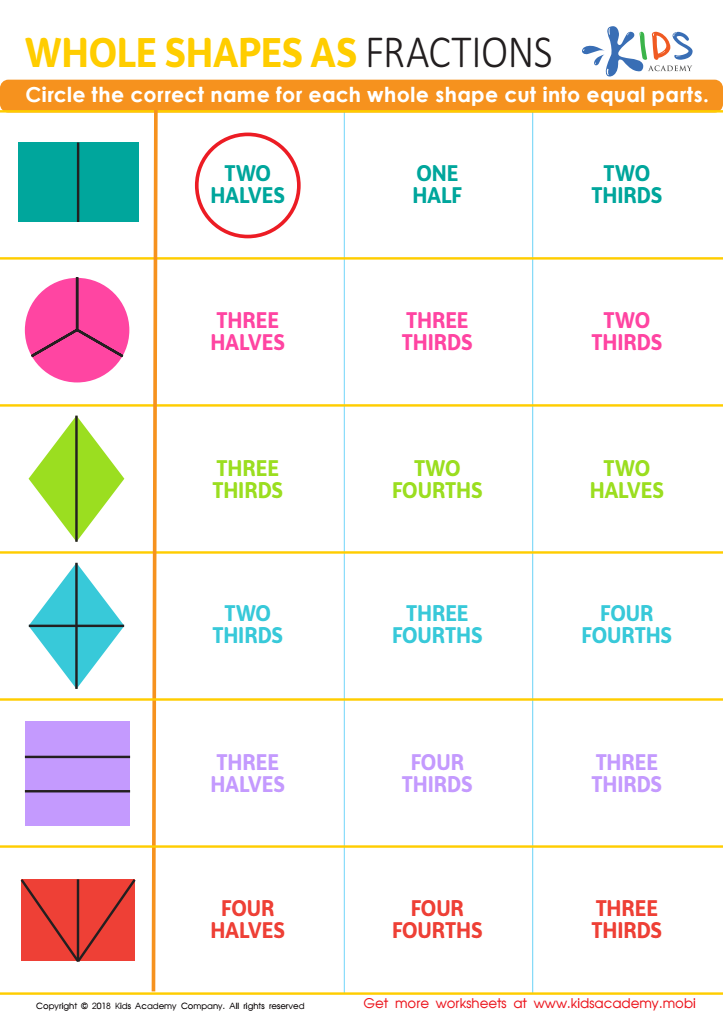

Whole Shapes as Fractions Worksheet
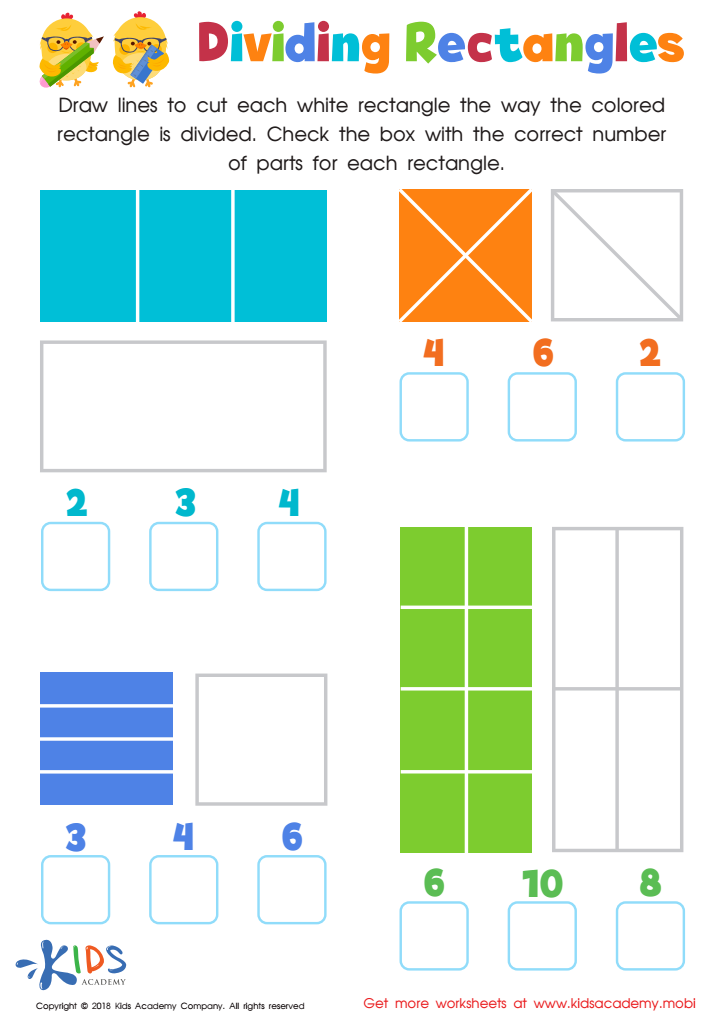

Dividing Rectangles Worksheet
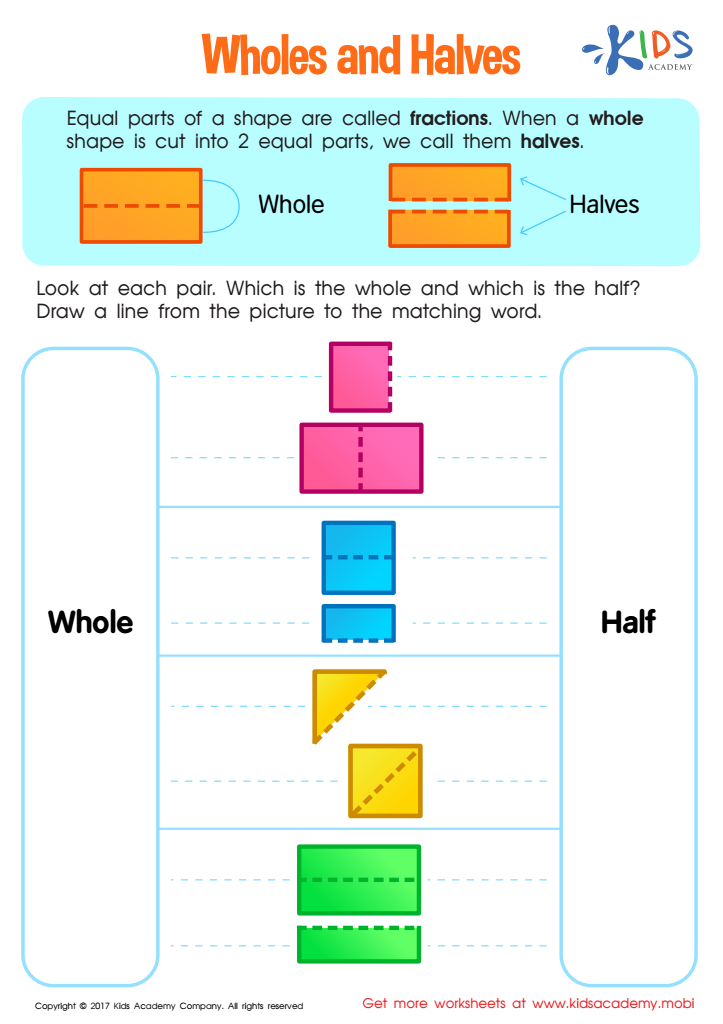

Wholes and Halves Worksheet
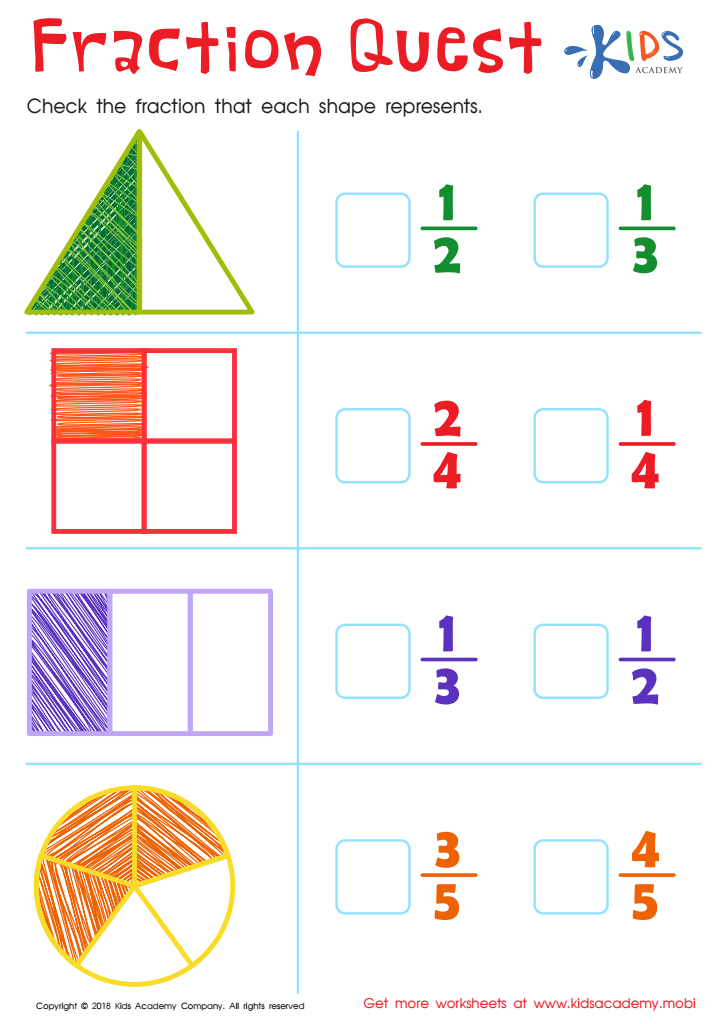

Fraction Quest Worksheet
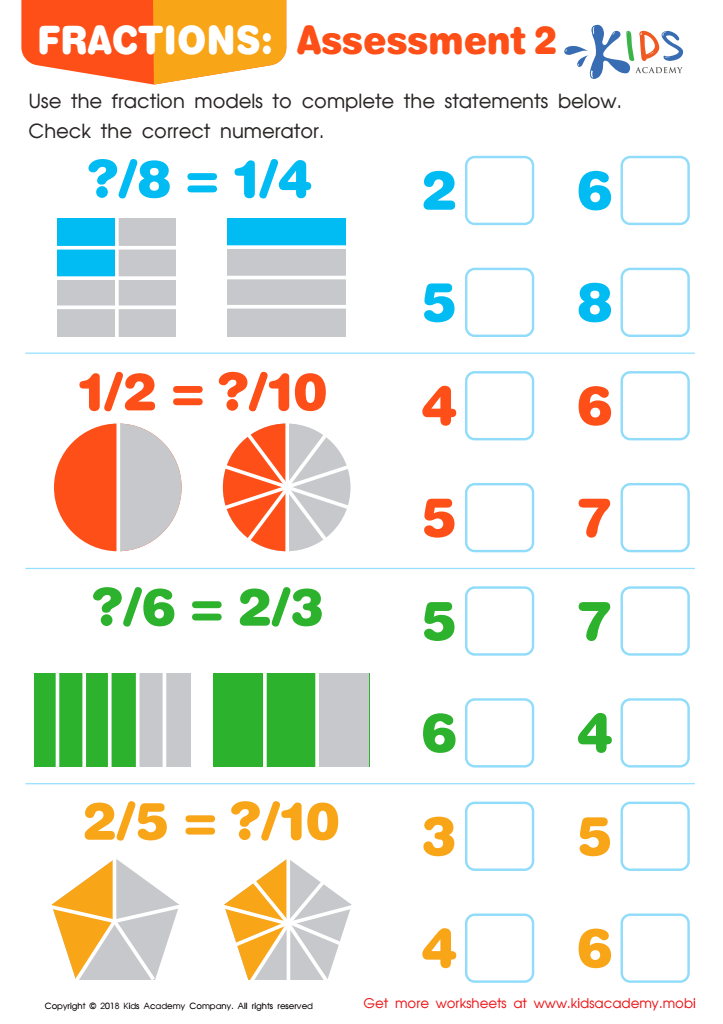

Fractions: Assessment 2 Worksheet
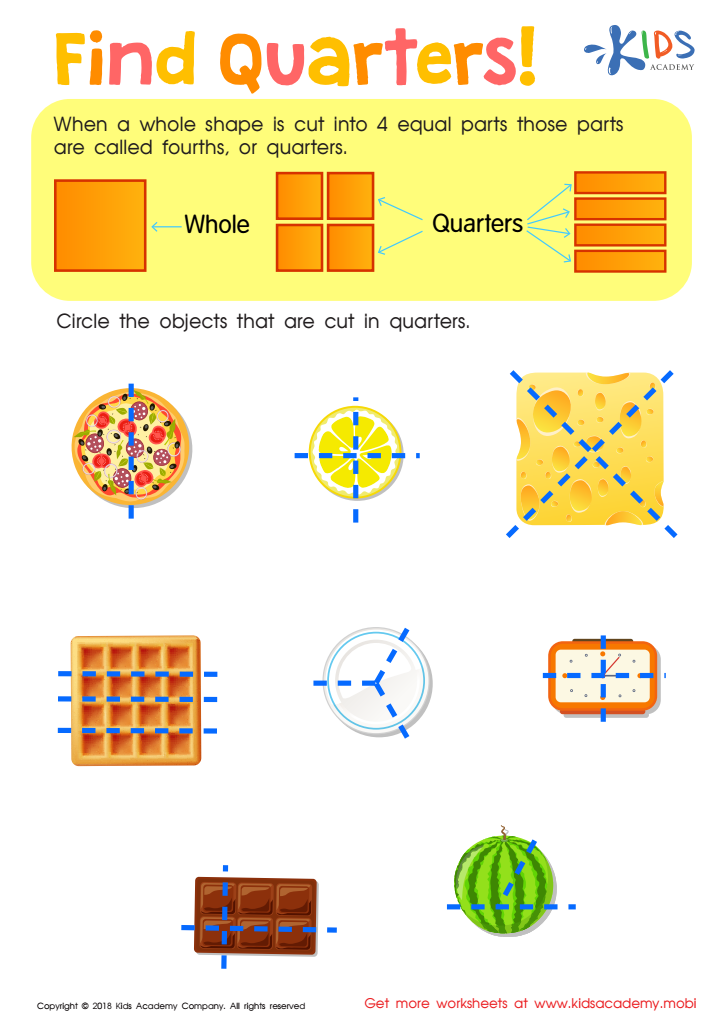

Find Quarters Worksheet
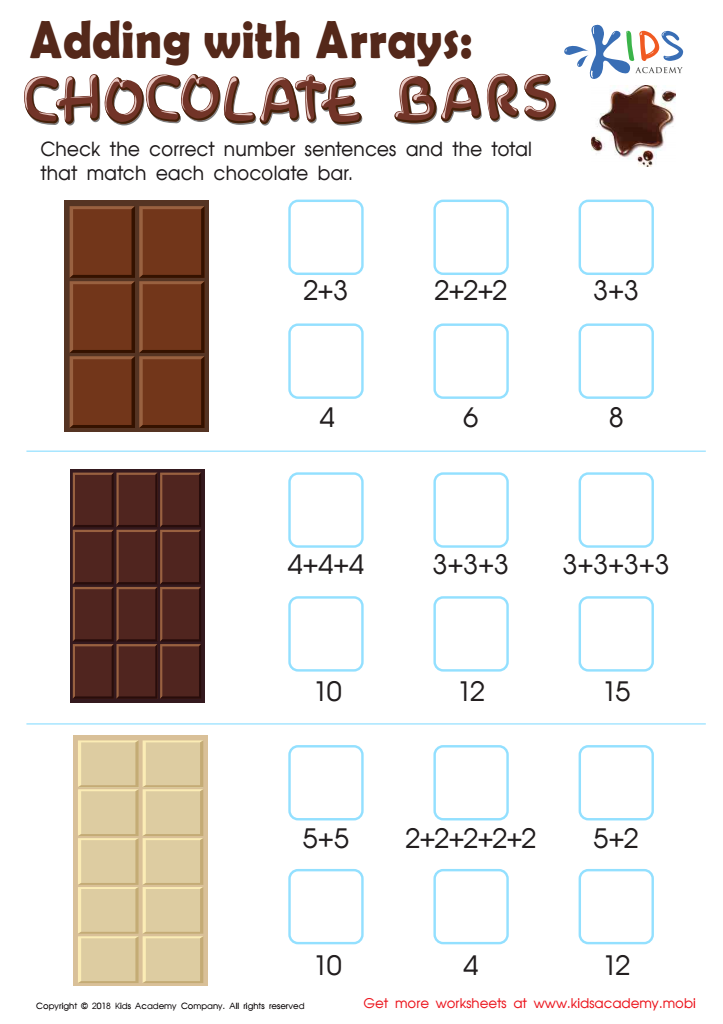

Adding with Arrays: Chocolate Bars Worksheet
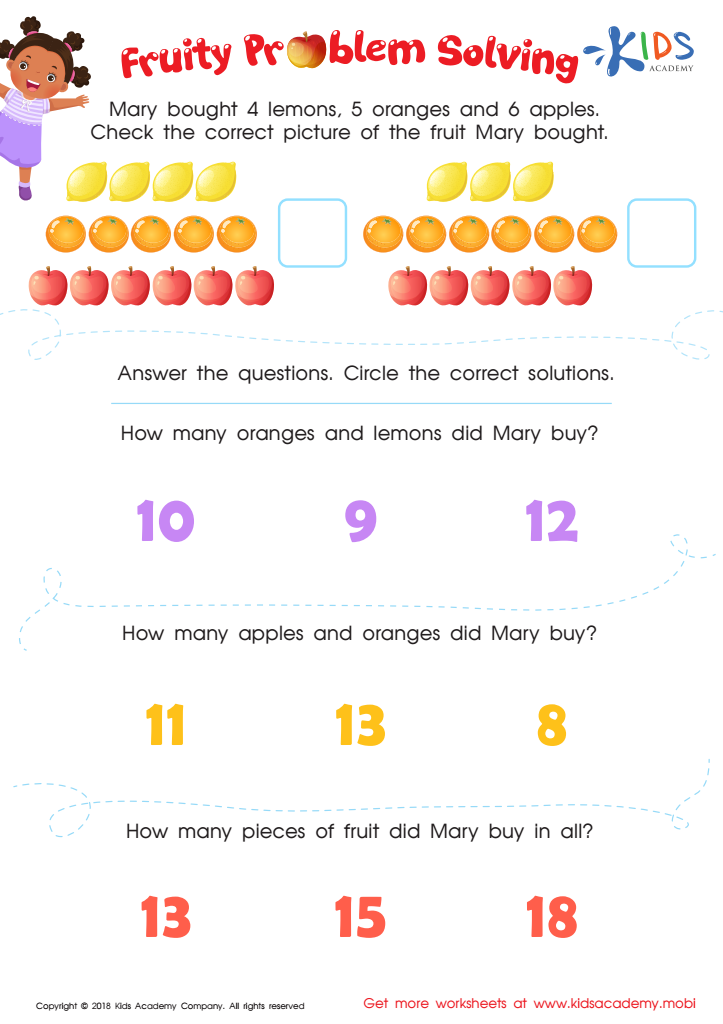

Fruity Problem Solving Worksheet
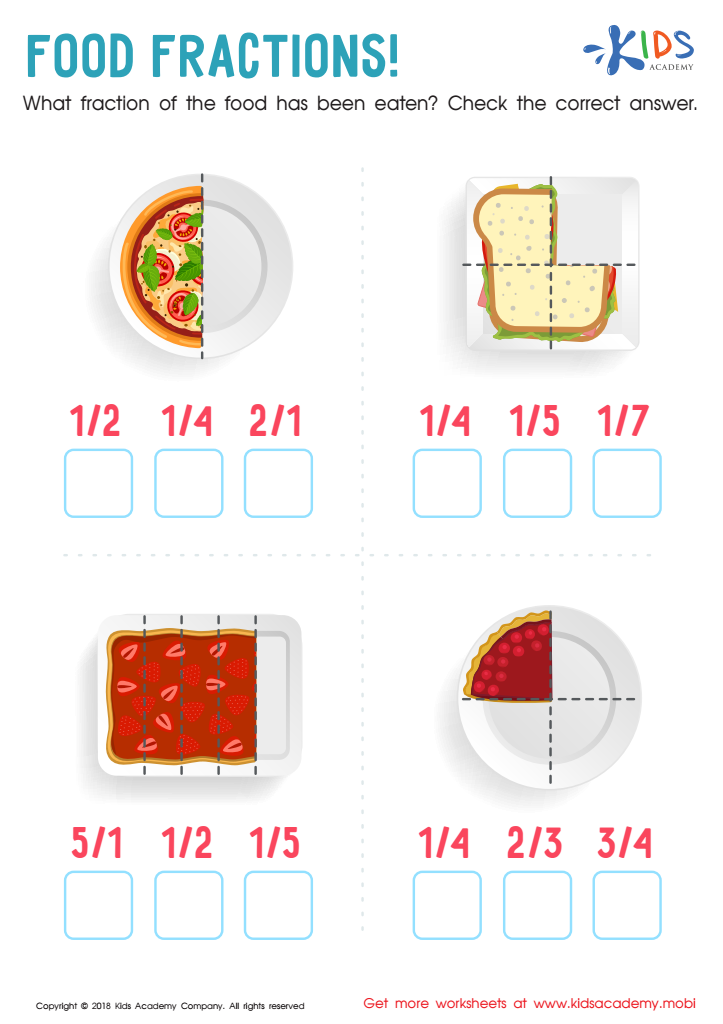

Food Fractions Worksheet
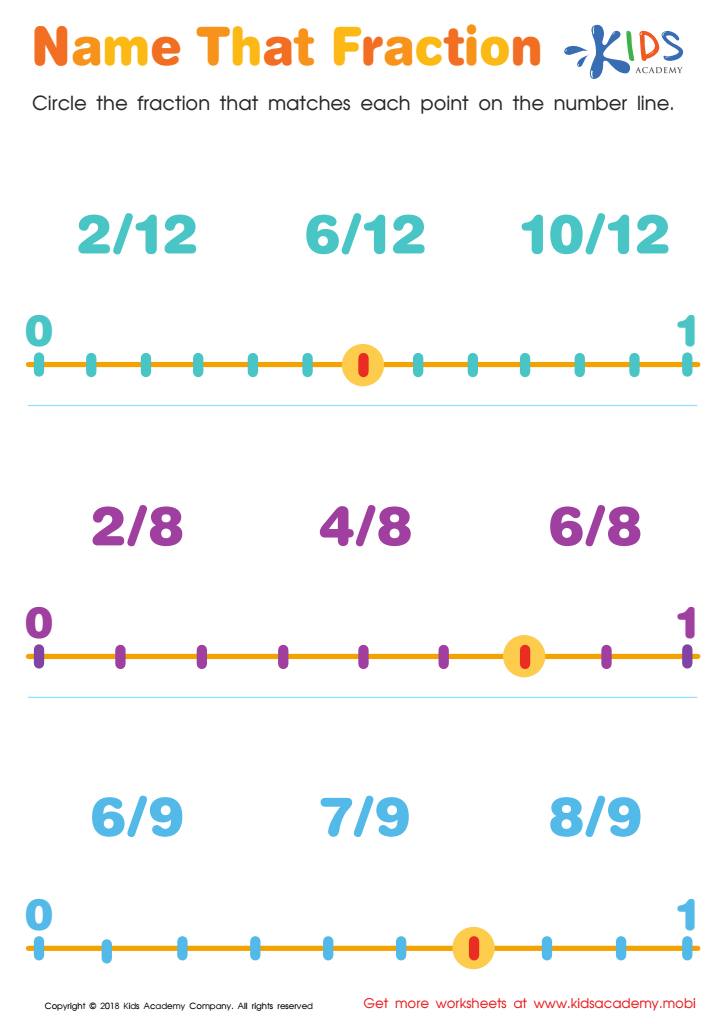

Name That Fraction Worksheet
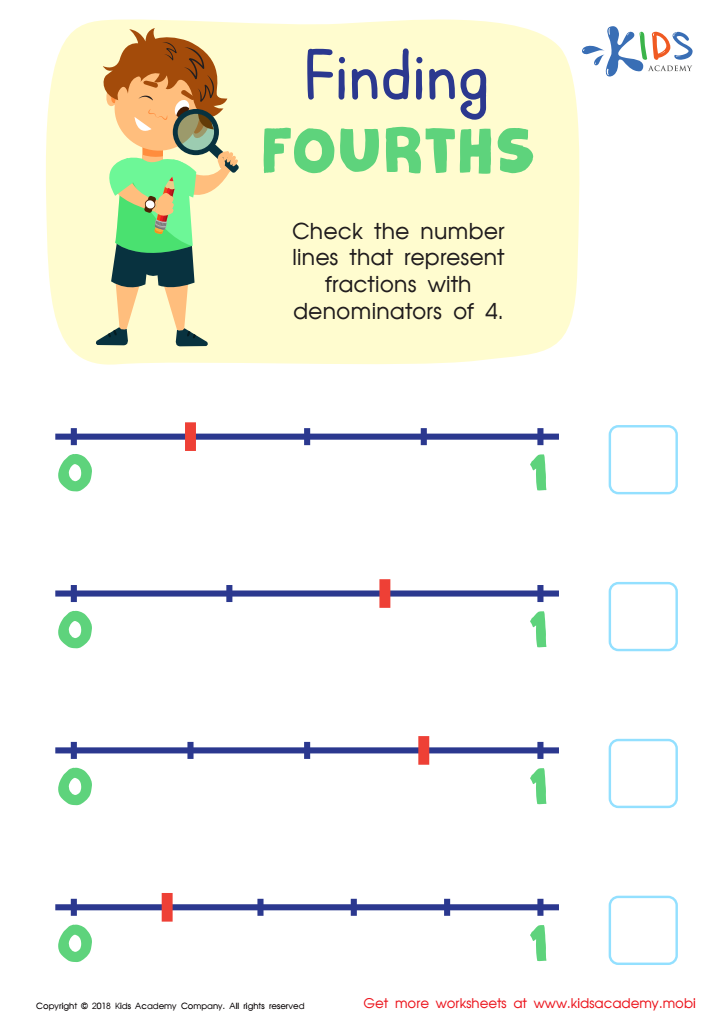

Finding Fourths Worksheet
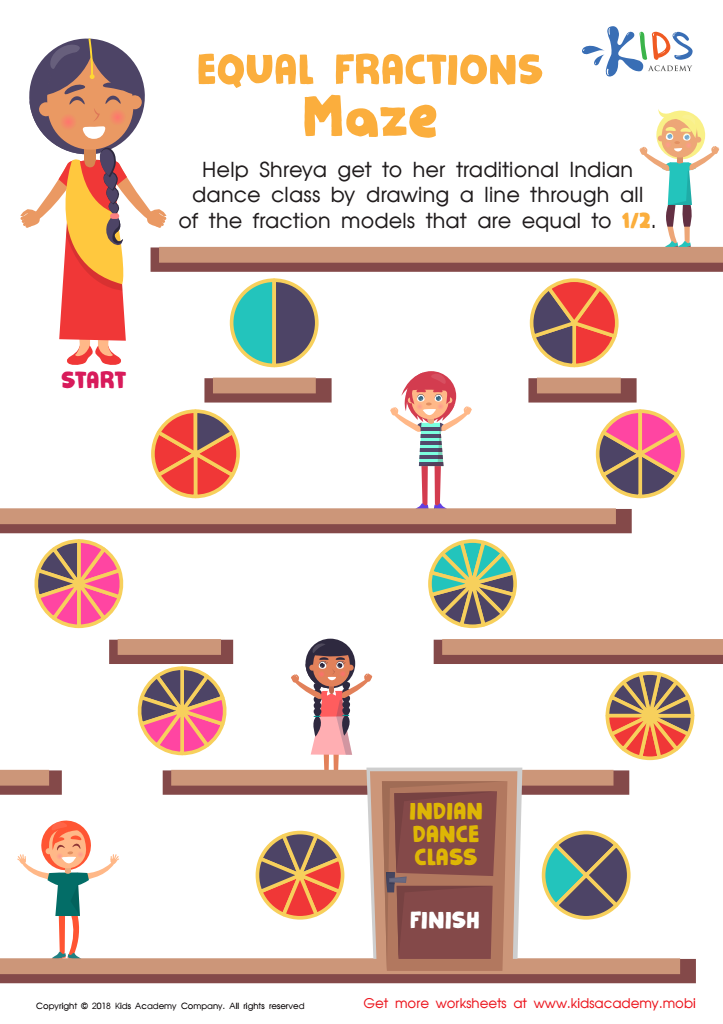

Equal Fractions Maze Worksheet
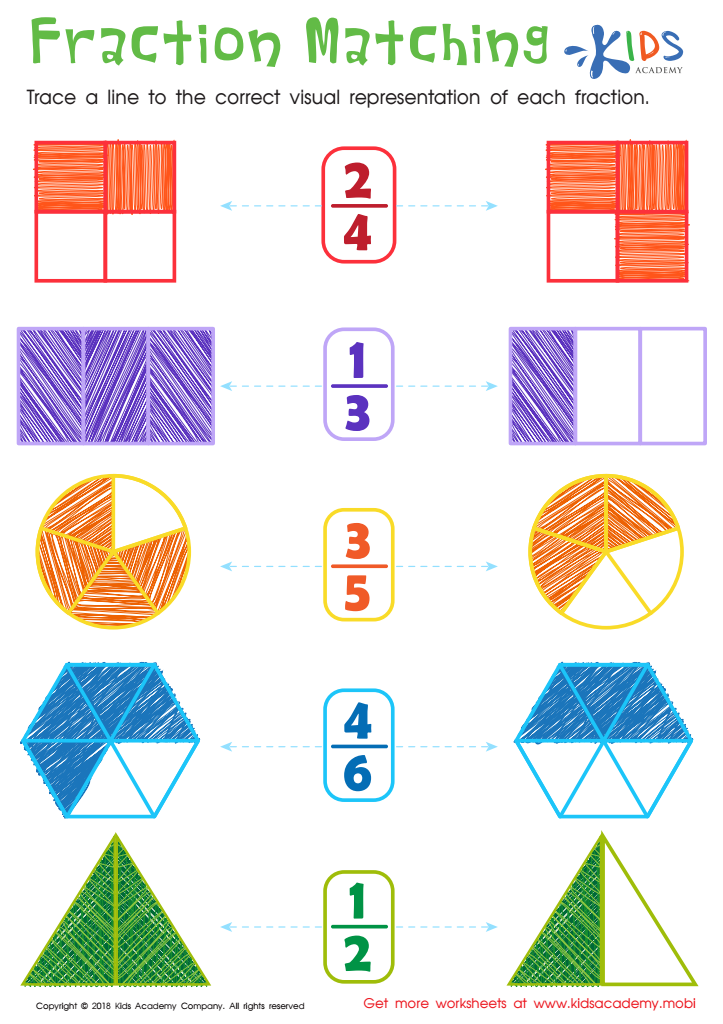

Fraction Matching Worksheet
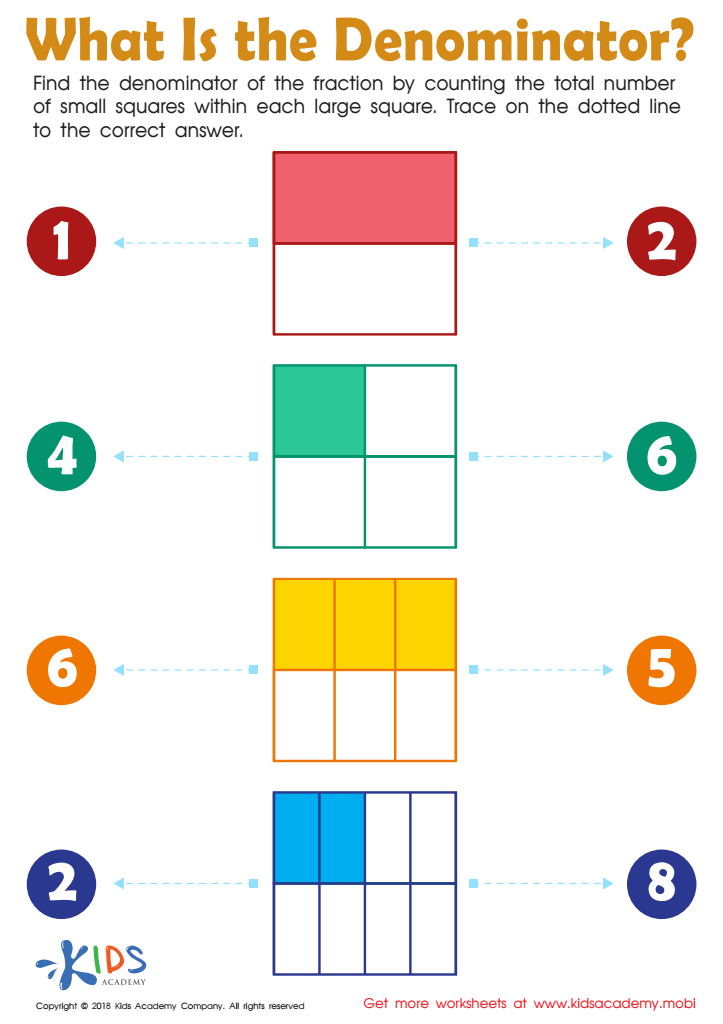

What Is the Denominator? Worksheet
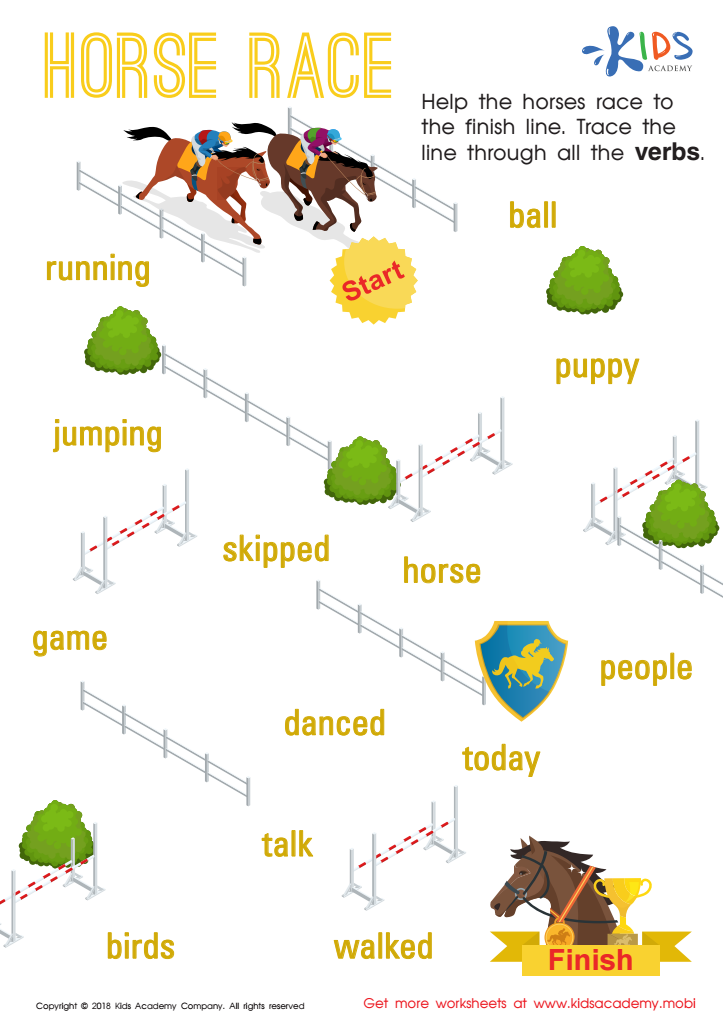

Horse Race Worksheet
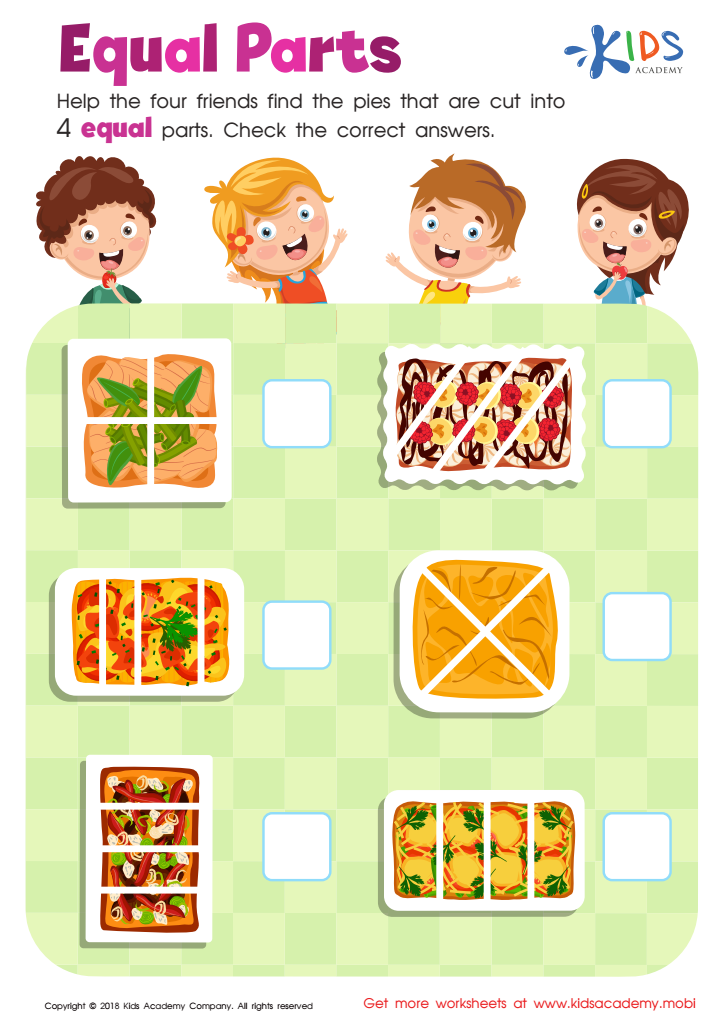

Equal Parts: Food Worksheet
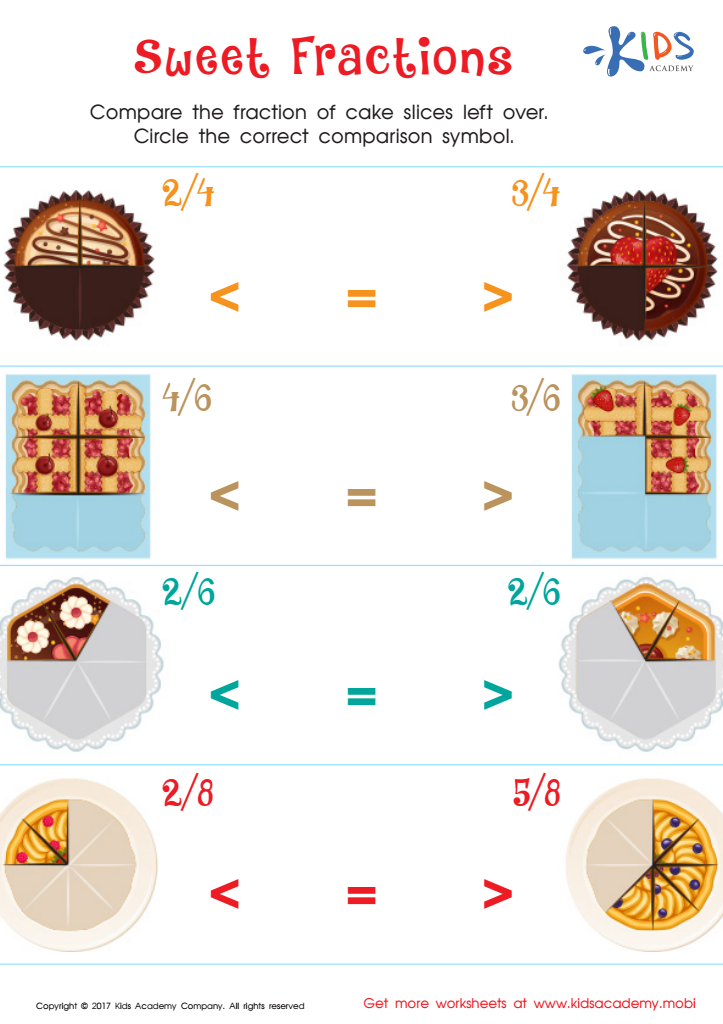

Compare Fractions Worksheet
Understanding fractions is crucial for children aged 7-9 as it lays the groundwork for essential math skills and problem-solving capabilities. At this stage, children are becoming more adept at recognizing parts of a whole, which fosters cognitive development. By grasping fractions, children learn to compare quantities, share equally, and understand simple concepts of division and ratios, which are all significant both academically and in everyday life.
Parents and teachers should care because a solid foundation in fractions promotes confidence in math, helping to prevent future difficulties with more complex concepts like decimals and percentages. This age group is intensely curious and open to learning; if they encounter fractions positively, they will approach math without fear and view challenges as opportunities. Furthermore, everyday activities such as cooking, sports, and sharing provide real-life contexts for mastering fractions, making the learning process engaging and relevant.
Promoting a comprehensive understanding of fractions can also support language development, as children communicate mathematical reasoning. Therefore, reinforcing these skills can create a long-lasting positive attitude toward learning, helping children become adept problem solvers and critical thinkers—qualities they will benefit from throughout their education and beyond.
 Assign to My Students
Assign to My Students














